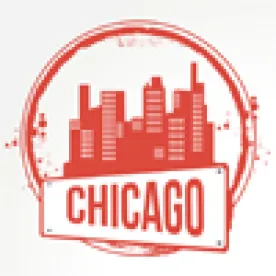On July 2, 2020, Chicago Department of Public Health Commissioner Allison Arwady, M.D., issued an emergency travel order (Public Health Order No. 2020-10) in an effort “to reduce the spread of COVID-19.” The order requires all persons entering the City of Chicago from a “high incidence state” as designated by the Chicago Department of Public Health (to self-quarantine for the duration of their presence in Chicago or a period of 14 days (whichever is shorter). Below are 15 questions Chicago employers may want to have answered to prepare for implementation of the new order.
Question 1. When does the order become effective?
Answer 1. The requirement to self-quarantine applies to all persons arriving in Chicago from one of the designated states at or after 12:01 a.m. on Monday, July 6, 2020.
Q2. What are the designated states?
A2. Currently, there are 15 designated states: Alabama, Arkansas, Arizona, California, Florida, Georgia, Idaho, Louisiana, Mississippi, North Carolina, Nevada, South Carolina, Tennessee, Texas, and Utah. The City of Chicago’s website maintains an updated list of designated states.
Q3. Are there any exceptions to the order?
A3. Yes. Essential workers who are returning from one of the designated states are not subject to the self-quarantine requirement “if they are traveling for work purposes” with identification issued by their employer under the following circumstances:
-
A non-resident of Chicago is traveling from one of the designated states to Chicago for work and must be physically present in Chicago to perform that work.
-
A Chicago resident is returning from one of the designated states and was performing work that required the employee to be physically present in that state.
Q4. Who is an essential worker?
A4. An essential worker is “a person who works in critical infrastructure as designated by the Cybersecurity and Infrastructure Security Agency.” They include those who work in the following sectors: Chemical; Commercial Facilities; Communications; Critical Manufacturing; Dams; Defense Industrial Base; Emergency Services; Energy; Financial Services; Food and Agriculture; Government Facilities; Healthcare and Public Health; Information Technology; Nuclear Reactors, Materials, and Waste; Transportation Systems; and Water and Wastewater Systems.
Q5. As essential workers, are employees allowed to travel in Chicago for personal reasons upon their return from one of the designated states?
A5. No. The exception only allows essential workers to travel to and from work or “for medical care and parental shared custody.”
Q6. What if law enforcement stop an employee while he or she is traveling to or from work?
A6. Currently, the order only requires employees to have work identification. However, employers may want to consider providing employees with letters that identify where they are employed and that they are essential workers.
Q7. What if an employee was in a designated state for personal reasons?
A7. The exception does not apply and the employee must self-quarantine for 14 days.
Q8. What if an employee just drove through one of the designated states?
A8. The order does not apply to persons that only pass through one of the designated states for a limited duration (less than 24 hours).
Q9. What is required of an employee subject to quarantine?
A9. Under the order, quarantine is defined as “staying at a single designated home or dwelling for 14 days before doing any activities outside of the home or dwelling.”
Q10. What about employees who live outside the city limits, but work in Chicago?
A10. These employees must comply with the order if returning from one of the designated states subject to the “essential worker” limited exception for Chicago residents (see Q3 above).
Q11. Will the designated states change?
A11. The states will be “reviewed and amended every Tuesday, starting July 14, 2020, with the order effective for those states the following Friday (three days later).”
Q12. What are employers required to do if employees travel to one of the designated states for personal reasons?
A12. For employees subject to the order because they arrived in Chicago at or after the effective date, employers should “consult the City’s Anti-Retaliation Ordinance, Paid Sick Leave Ordinance, and the Families First Coronavirus Response Act (FFCRA) in determining the appropriate response.” In addition, “[i]f the employer is covered under the FFCRA and if the employee is unable to work or telework due to one of the specified COVID-related reasons in the FFCRA, the employee is likely eligible for up to two weeks of paid leave under the FFCRA.”
Q13. What if the employee does not show any symptoms or has a negative COVID-19 test result upon his or her arrival in Chicago?
A13. The employee is still subject to the order and must quarantine unless one of the exceptions apply.
Q14. What is the penalty for violating this order?
A14. “Individuals found in violation of the Order are subject to fines of $100 [to] $500 per day, up to $7,000.”
Q15. Where can I find more information?
A15. The City of Chicago has provided on its website answers to frequently asked questions regarding the order.




 />i
/>i

